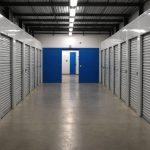Sourcing wholesale coffee demands more than just finding a supplier it requires clear objectives, thorough quality checks, and smart negotiation. Understanding supply chains, verifying certifications, and balancing cost with bean quality ensures you secure the best product for your needs. Avoid common pitfalls like ignoring supplier credibility or overlooking logistics. This guide equips you with actionable insights to confidently procure coffee that satisfies both your business goals and ethical standards.
Key Steps in Sourcing Wholesale Coffee
Sourcing wholesale coffee begins by clearly defining your sourcing objectives and volume requirements. Understanding how much coffee your café requires on a weekly or monthly basis helps target the right suppliers. This step is critical because it influences budget planning, storage needs, and inventory management.
Additional reading : Maximize productivity with smart maintenance management software
Next, mapping out the coffee supply chain essentials provides insight into the journey from bean to cup. Familiarity with key stages—such as coffee farming, processing, exporting, and roasting allows you to make informed decisions about quality and sustainability. Understanding these elements ensures that your café procurement aligns with both ethical standards and the tastes your customers expect.
The final key step involves shortlisting reliable wholesale coffee suppliers. Prioritize suppliers who demonstrate consistency in quality, certifications, and transparency. Effective communication and the ability to meet delivery timelines are equally important. By focusing on these aspects, your sourcing coffee beans process becomes efficient, reducing risks associated with supply shortages or subpar quality.
Also read : How Can UK Retailers Use AI to Enhance Customer Experience and Personalization?
For more in-depth insights into sourcing wholesale coffee, consider exploring trusted industry guidance such as resources from John Street Beverage.
Critical Factors to Consider When Selecting Coffee Suppliers
Selecting the right coffee supplier starts with a careful assessment of quality coffee beans. The origin of the beans greatly influences flavor profiles, freshness, and overall taste experience. Understanding whether the beans come from renowned regions such as Ethiopia, Colombia, or Guatemala helps predict the coffee’s characteristics. Beyond origin, suppliers who provide detailed information about harvest times, processing methods, and storage conditions demonstrate transparency and commitment to quality.
Coffee certifications play a pivotal role in supplier evaluation. Certifications like Fair Trade, Organic, and Rainforest Alliance are vital markers of ethical and sustainable sourcing. Fair Trade certification ensures fair wages and decent working conditions for farmers. Organic certification confirms the absence of harmful pesticides, promoting health and environmental safety. Rainforest Alliance certification emphasizes biodiversity conservation and sustainable farming practices. These certifications not only influence the social and environmental impact but also reassure buyers of the beans’ consistent quality.
Evaluating a supplier’s reputation is equally important. Researching their history in coffee sourcing, client testimonials, and responsiveness to queries sheds light on their reliability and business ethics. Suppliers who maintain sourcing transparency by openly sharing their supply chain information embody trustworthiness. This openness allows coffee buyers to verify claims about sustainability and quality, helping them make informed decisions.
In summary, focusing on quality coffee beans, verifying coffee certifications, and thoroughly performing supplier evaluation are crucial steps to secure a sustainable and high-quality coffee supply. For a deeper dive into wholesale coffee sourcing best practices, agencies like John Street Beverage offer detailed resources to guide businesses through these critical decisions.
Effective Pricing and Negotiation Strategies for Wholesale Coffee
Understanding coffee pricing strategies is essential for managing wholesale coffee costs effectively. Price structures vary depending on factors like coffee origin, quality, and supplier policies. Market rates fluctuate based on supply and demand, seasonal harvests, and global coffee trends. By analyzing these patterns, businesses can identify optimal times to purchase and avoid paying premium prices unnecessarily.
Supplier negotiation plays a crucial role in reducing wholesale coffee costs. Building strong relationships with suppliers enables buyers to negotiate better terms, such as improved payment schedules, delivery conditions, or price discounts. Awareness of a supplier’s cost drivers and their position in the market strengthens negotiation leverage. It is advisable to prepare with data on competitor pricing and historical purchase volumes to support claims during discussions.
Understanding minimum orders and discounts is another key aspect of cost management. Suppliers often set minimum order quantities to ensure profitability, but negotiating these thresholds or securing volume discounts can substantially lower per-unit prices. Businesses should evaluate their storage capabilities and sales forecasts to optimize order size without overcommitting resources. Additionally, exploring tiered discount structures can maximize savings as order sizes increase.
In summary, effective coffee pricing strategies and supplier negotiation require thorough market analysis and strategic communication. Managing wholesale coffee costs hinges on understanding price components, leveraging supplier relationships, and optimizing order sizes.
Common Mistakes to Avoid When Sourcing Wholesale Coffee
Sourcing wholesale coffee can be complex, and wholesale sourcing mistakes often stem from prioritizing cost over quality. Choosing the cheapest option might seem financially savvy at first, but it risks compromising the coffee’s flavor and consistency, ultimately impacting customer satisfaction. Quality should be non-negotiable when evaluating suppliers, as inferior beans can damage your brand reputation.
Another critical error is failing to verify supplier credibility. Many buyers neglect to perform due diligence, overlooking important background checks such as certifications, customer reviews, and production standards. This exposes businesses to supplier risks like inconsistent supply, fraud, or shipment of subpar products. Always validate supplier credentials thoroughly before committing.
Logistical and import considerations are frequently ignored, leading to costly delays and unexpected expenses. Variables such as customs regulations, shipping times, and storage conditions must be assessed early in the procurement process. Mismanaging these factors can result in procurement errors that disrupt your supply chain and inflate costs. Addressing these aspects proactively ensures smoother wholesale sourcing operations.
Recommended Sources for Wholesale Coffee
Discover the best places to find quality wholesale coffee, focusing on trusted coffee providers both domestically and internationally.
When choosing wholesale coffee suppliers, understanding the differences between domestic vs international coffee is crucial. Domestic suppliers often provide fresher batches and easier logistics, while international coffee producers offer unique flavors from renowned coffee-growing regions worldwide. Trusted coffee providers can ensure consistent quality, traceability, and ethical sourcing practices that align with your business values.
Leading Domestic Coffee Suppliers
Domestic wholesale coffee suppliers typically excel in providing quick turnaround times and reliable customer service. Many roasters in the US offer specialty blends tailored to American preferences. Working with these trusted coffee providers guarantees access to freshly roasted beans with transparency regarding origin and roast date. Furthermore, domestic suppliers allow for customizable orders ideal for cafes and small businesses looking to distinguish their coffee offerings without long shipping delays.
Notable International Coffee Producers
International coffee producers play a vital role in bringing bold, authentic flavors from countries like Colombia, Ethiopia, and Brazil. These regions are celebrated for their diverse coffee profiles shaped by unique climates and soil conditions. Partnering with reputable wholesale coffee suppliers abroad means tapping into artisan batches that support local farmers and sustainable practices. It’s essential, however, to navigate import regulations and shipping to maintain bean freshness upon arrival. Understanding the logistics and advantages of sourcing from international coffee producers helps expand your palette and customer base with global selections.
Online Wholesale Platforms
Online platforms have revolutionized how buyers connect with wholesale coffee suppliers. These digital marketplaces provide access to a wide variety of trusted coffee providers, both domestic and international, offering detailed product descriptions, reviews, and competitive pricing. Leveraging online wholesale platforms allows businesses to compare options easily and place bulk orders without geographic constraints. To make the most of these tools, focus on platforms featuring transparent supplier information and customer feedback to ensure quality and reliability. For further insight into sourcing quality wholesale coffee effectively, explore resources like John Street Beverage.
Legal and Logistical Essentials in Coffee Procurement
When sourcing coffee, understanding coffee import regulations is crucial. Importers must comply with the specific legal requirements set by both exporting and importing countries. These regulations can include certifications, quality standards, and customs duties. Failure to adhere to these rules can result in delays or confiscation of shipments.
Shipping logistics play a vital role in maintaining the quality and timely delivery of coffee beans. Efficient management of shipping methods, storage conditions, and transit timelines can prevent spoilage and preserve freshness. Planning for potential bottlenecks and choosing reliable carriers is essential for seamless logistics.
Additionally, preparing the necessary legal documentation such as bills of lading, certificates of origin, and phytosanitary certificates is mandatory. These documents ensure smooth customs clearance and verify compliance with all legal requirements. For companies looking to streamline their procurement process, resources like John Street Beverage offer comprehensive insights into sourcing and logistics, helping navigate these complexities effectively.
Expert Tips and Actionable Checklists for Successful Wholesale Coffee Sourcing
Streamlining your coffee procurement process requires expert advice and a well-structured coffee sourcing checklist.
Successful wholesale coffee sourcing hinges on applying procurement best practices shared by industry professionals. These insiders emphasize understanding supplier reliability, coffee quality, and logistical efficiency. Expert advice often highlights the importance of building strong relationships with suppliers to ensure consistent product quality and favorable terms.
Creating a coffee sourcing checklist can significantly streamline your decision-making. Key items to include are supplier certification verification, sample tasting protocols, pricing comparisons, and delivery lead time assessments. This checklist serves as a practical tool to avoid overlooking critical factors and ensures every sourcing decision aligns with your business goals.
Adapting procurement best practices is vital when scaling your coffee sourcing operations. Larger volume purchases demand tighter coordination and analytics-driven decisions. Using data to monitor supplier performance, inventory turnover, and cost fluctuations provides a full picture, helping you stay agile. Integrating these approaches promotes long-term success and resilience in the complex wholesale coffee market.











